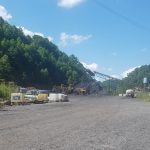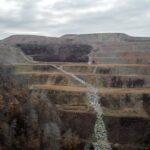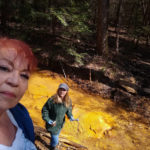
Recent developments in the Blackjewel bankruptcy case raise more doubts about whether the serious reclamation problems at many of its coal sites will be properly addressed anytime soon.

Recent developments in the Blackjewel bankruptcy case raise more doubts about whether the serious reclamation problems at many of its coal sites will be properly addressed anytime soon.

With industry projections trending downwards, questions continue about whether the mine reclamation system can handle ongoing bankruptcies.
Murray Energy filed for bankruptcy in October, the latest of eight coal bankruptcies in 2019. Legal disputes regarding the summer Blackjewel bankruptcy continue.

An unreclaimed coal mine has sent mud and debris onto a neighboring property. The mine is one of five Virginia permits owned by bankrupt Revelation Energy and Blackjewel that are now facing bond forfeiture, which means the state or the mines’ insurance companies could take over the cleanup.

Citizen scientists discovered that acid mine drainage is causing a creek in Kentucky’s Daniel Boone National Forest to flow a bright orange, and they spurred state regulators to issue citations to the mine operators. But mining company Revelation Energy is in bankruptcy, which leaves big questions about who will clean up the mess — and when.

Two coal company bankruptcies in July resulted in retroactively withdrawn paychecks from coal miners and an unclear future for roughly 13,000 acres of unreclaimed mine land.

Appalachia’s latest coal bankruptcy looks different than others — mines shut down immediately and paychecks were clawed back from employees’ bank accounts. We take a look at what the Blackjewel and Revelation Energy bankruptcy could mean for mine land reclamation.